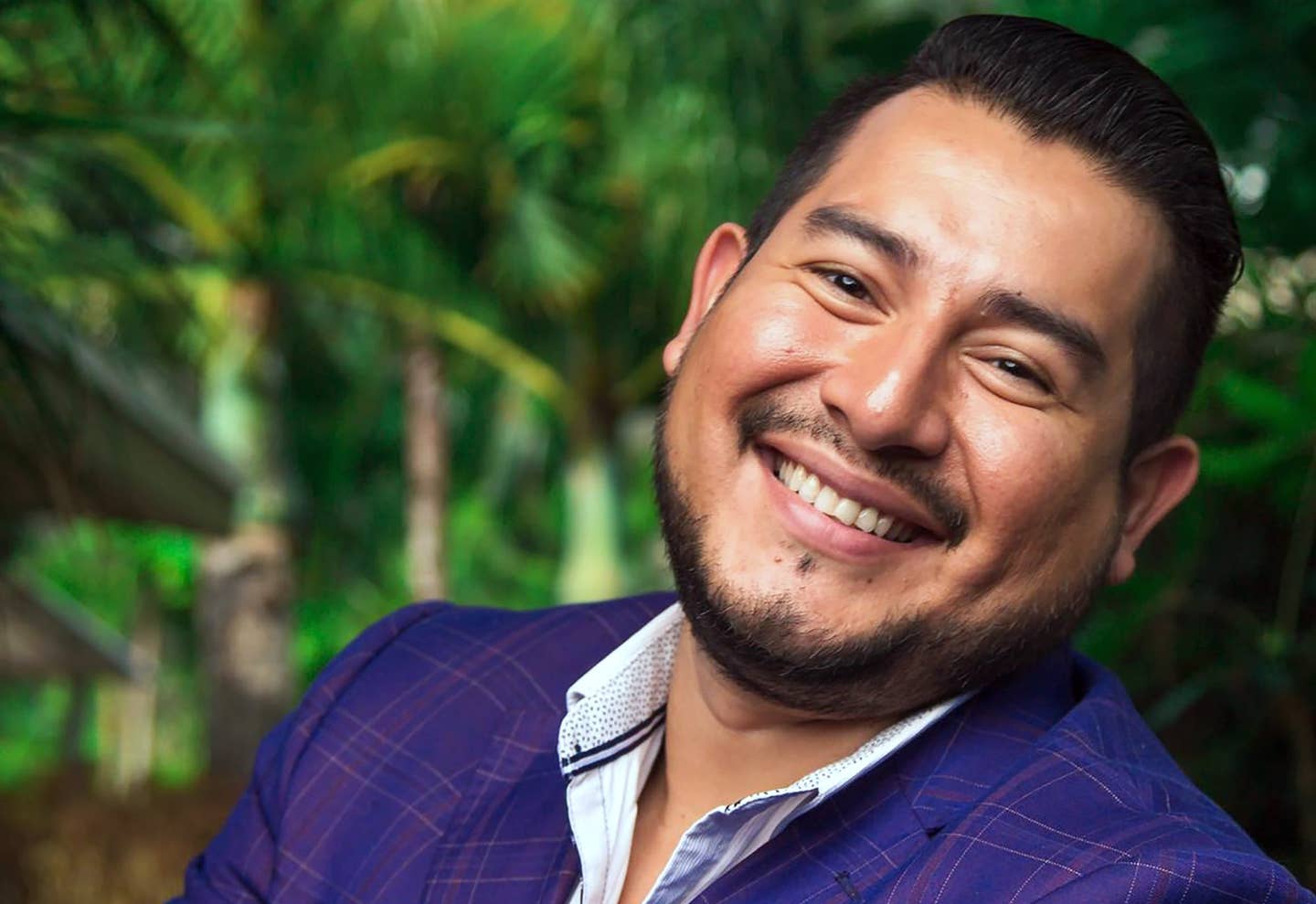He’s an opera tenor who grew up poor in El Salvador: Mario Arévalo’s amazing journey
“I swear to you, I never dreamed that all these things would happen in my life, because I come from a very humble place,”

[Oct. 13, 2020: María Peña, Noticias Telemundo]
As a child in El Salvador, Mario Arévalo dreamed of being a doctor. But in the United States, destiny took him in a different direction: He's a rising star in the opera world, or, as some of his fans describe him, a "healer of souls."
Like thousands of young people who have emigrated from Central America, Arévalo, 35, lived in extreme poverty in his native city of San Vicente, moving from one house to another with his mother as she struggled to pay the rent.
In a telephone interview with Noticias Telemundo, Arévalo — who is based in New York — reflected on how he overcame adversity with the support of his mother and of his English as a Second Language teacher who encouraged him to pursue an artistic career.
“My ESL teacher was the one who discovered that I was talented and introduced me to choir and music classes, then I met singing teachers, and my love for music grew,” he said.
Easy with a laugh, Arévalo does not forget the dusty soccer fields where he played as a child or his patched pants, or the shoes with colorful lights that a friend received as a gift from his mother in the U.S.
His own mother, a domestic worker, left him with his grandmother when he was only 8 years old so that she could emigrate to the U.S., but promised to buy him the same ones when they met again in this country. The reunion took six years.
“She came to the U.S. without papers, then obtained residency when she got married and brought me. At first, as a child, I didn't understand anything, but now I tell her that I understand her sacrifices, she and my stepfather are my No. 1 fans, they don't miss any shows,” Arévalo said. "My mother is my heroine, although when I was little I had resentments about the separation, she is everything."
"Not a very easy world"
Throughout his career, Arévalo has performed on numerous stages and opera houses in the United States, and has brought his talent as a tenor to countries such as Austria, Canada, Italy, Peru and throughout Central America.
"I have been a lucky person, because it is not a very easy world for Latinos,"he said. "This career involves many sacrifices because, as an artist, you miss many Christmases, many parties with the family."
“It was very difficult to reach spaces where there were only Anglo-Saxons; It was not easy being a Latino in auditions with 500 or 600 people competing for one or two spots in a production," he added.
Last year, Arévalo participated in the XXII International Lyrical Singing Competition and Festival, in Peru, where he represented El Salvador for the first time.
The artist, who has been named a Goodwill Ambassador for Culture and Fine Arts by the United Nations Association of El Salvador, dedicates time to teaching singing classes and training new talents.
Opera is "for everyone"
The world of opera can be an intimidating and alien experience, Arévalo acknowledges, especially for young Latinos who only know popular ballads, bachatas or reggaeton. But Arévalo insists that opera "is for everyone."
Opera is better than just listening to a regular song, said Arévalo. "With opera you can see it, feel it, hear it. Opera takes you to exciting, incredible places, even if you don't understand the language,” he said.
Some of the myths surrounding the opera world, Arévalo said, are that operas are only in Italian or German; that they are only for wealthy people; that you have to wear tuxedos or long dresses for a function, or that the singer or the singer is always fat and wears Viking helmets.
With the commitment to bring opera closer to future generations, Arévalo traveled to San Vicente last year where he offered a free performance in a rural town that had never seen an opera.
The show, which featured national artists and one from Germany, drew nearly a thousand people to the theater, and another 16,000 who saw it live on Facebook.
“It was the best thing in my life," Arévalo said, "but what touched my heart the most was that after the concert, a fruit seller approached me and told me that she was grateful that I brought the opera to the town and to her ears; she had never heard it before."
Arévalo helped raise funds for the construction of a cultural center for poor families in San Vicente, the first of its kind in the area and expected to open in 2021.
This project, product of the citizen initiative “I want my theater,” will include a library and classes in art, music and ballet in the old building of the Jiboa Theater, and has had the support of both the previous leftist government of Salvador Sánchez Cerén as well as that of the current president, Nayib Bukele.
Arévalo also founded the organization “Una Voz, Un Mundo,” (One Voice, One World) an artistic initiative that gives youth musical instruments in El Salvador and in the U.S. and promotes the musical talent of women and minorities.
"I started this initiative so that young Latinos had a platform to present their music, from Latin America, from Latin American composers, because there is also Latin American opera," he said.
Last January, his organization distributed gifts to children during Three Kings Day, though the main goal was to promote access to art programs, since many schools in the United States have lost funding for art and music programs.
Arévalo, who prefers operas with dramatic endings, says he's grateful for the opportunities he has had in the U.S., because there are many arias (an opera song) ahead of him.
“I swear to you, I never dreamed that all these things would happen in my life, because I come from a very humble place," he said. "It's impressive the opportunities that life can give you, and you have to take advantage of them."
This Brighter Side of News post courtesy of NBC News.
Like these kind of stories? Get The Brighter Side of News' newsletter.



